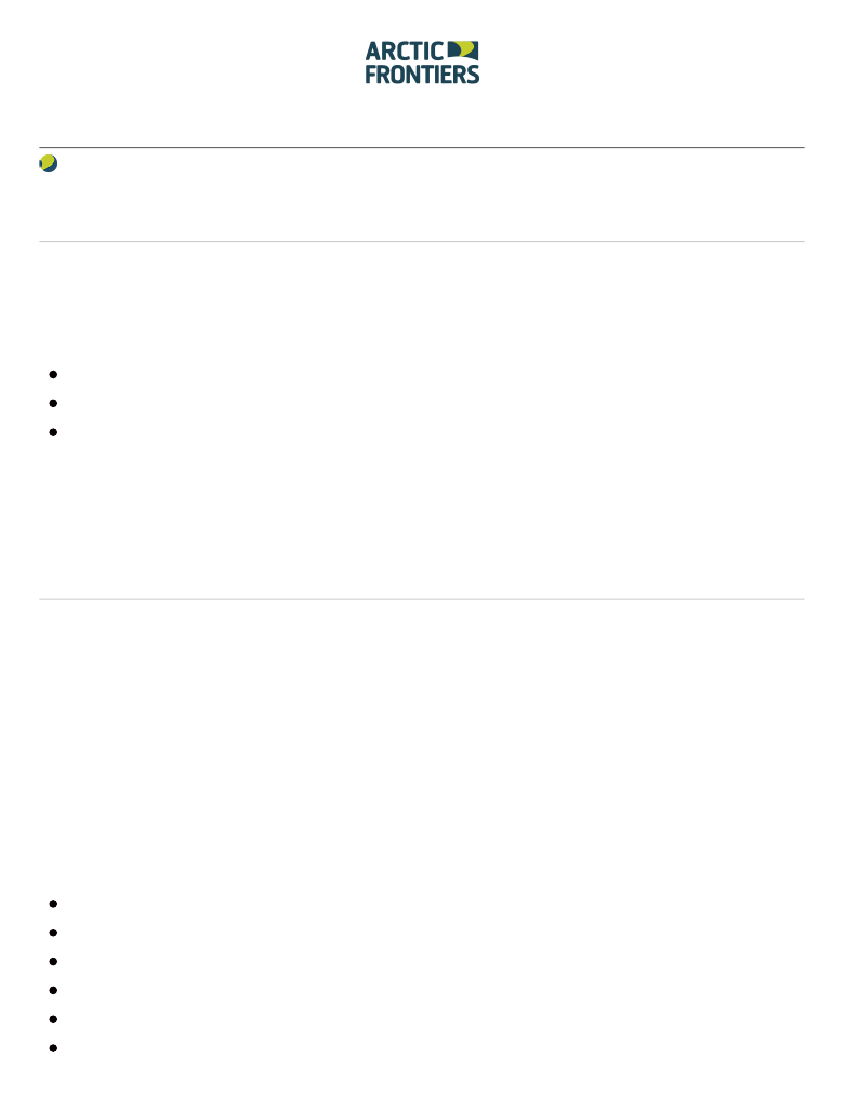
Arctic Frontiers
arcticfrontiers.com/pillar/policy/
Mon 23 Jan 2017
08:50 - 09:00
Welcome, Introductory remarks
Confirmed speakers:
Salve Dahle,
Chairman of the Steering Committee
Anne Husebekk,
Rector of the University,
Erna Solberg,
Prime Minister of Norway
Stephen Sackur
UIT - Auditorium 1
Policy
09:00 - 10:30
A changing Arctic
Session format: 5 minute introductions followed by armchair talk
We are witnessing major changes in the Arctic’s environment, climate, demographics and industry. New areas are
opening up for development, new resources are available, and new opportunities for cooperation are emerging – but
are we prepared to pursue those opportunities in a responsible way? The Arctic has a diverse population of nearly 4
million people. How do we balance the need for economic and social development of the Arctic on one hand with
the need for protection and stewardship on the other? How can conservation and use it be reconciled? What actions
can leaders in the Arctic’s regions to ensure sustainable development and benefits for the entire Arctic?
Confirmed speakers:
Erna Solberg,
Prime Minister of Norway
Juha Sipilä,
Prime Minister of Finland
Margot Wallström,
Foreign Minister of Sweden
Jeffrey Sachs,
Earth Institute, Columbia University
Sturla Henriksen,
Norwegian Shipowners Association
Carolina Behe,
Indigenous Knowledge Advisor, Inuit Circumpolar Council Alaska
Ingrid Skjoldvær,
Head of Nature and Youth Norway
1/5